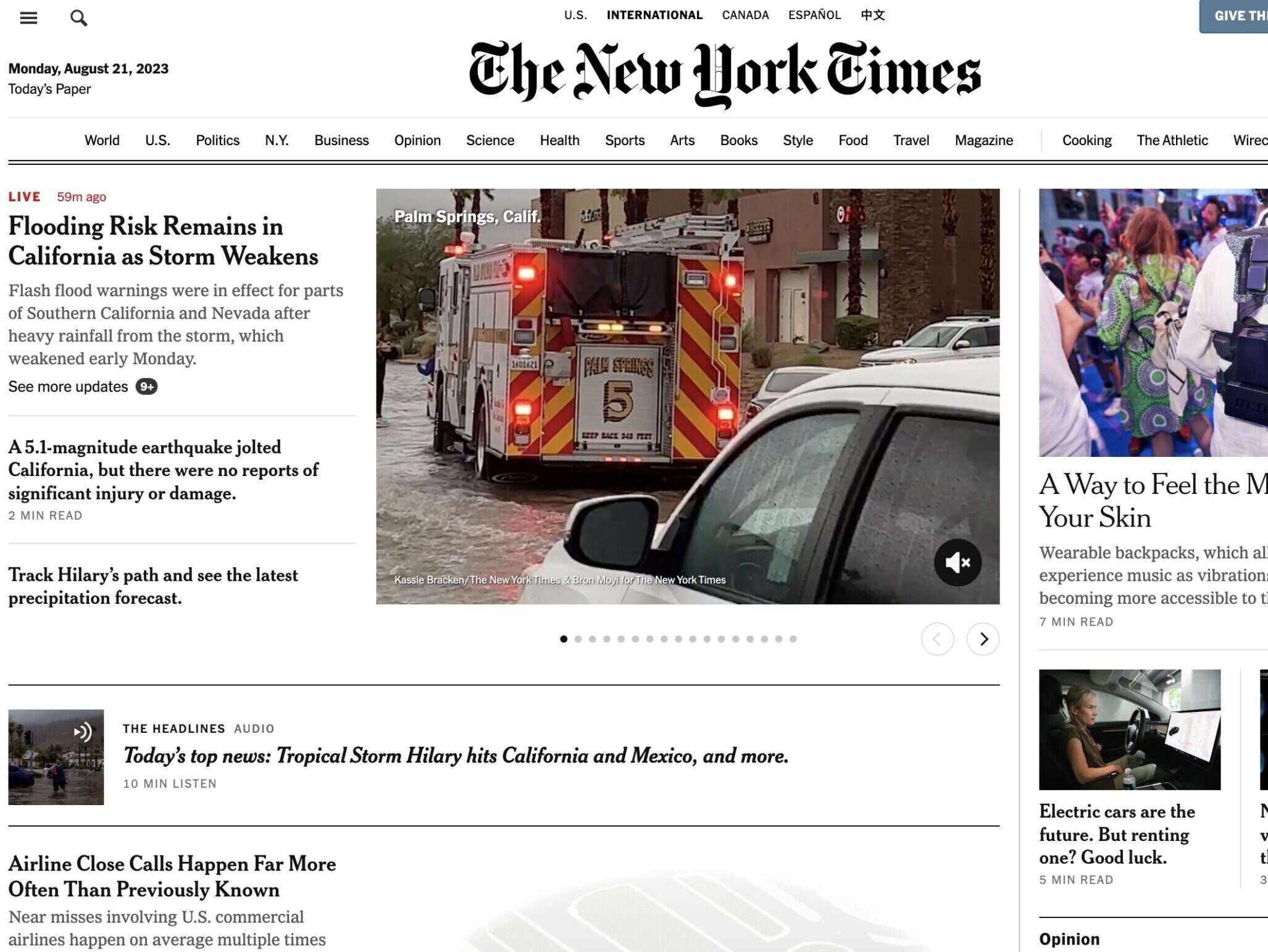An Unbiased View of News Websites
An Unbiased View of News Websites
Blog Article
Little Known Questions About News Websites.
Table of ContentsNews Websites Things To Know Before You Get ThisIndicators on News Websites You Should KnowAbout News WebsitesNews Websites Can Be Fun For Everyone9 Simple Techniques For News Websites
It was down in the UK and Brazil but up a few other nations, such as Greece, Bulgaria, and Poland (News Websites). This year, for the very first time, we asked regarding the various manner ins which individuals prevent the information and discovered that around half of avoiders (53%) were trying to do so in a broad-brush or periodic means as an example, by switching off the radio when the news began, or by scrolling past the information in social networksYou claimed that you attempt to proactively avoid news.

I'm possibly choosing to learn more light-hearted stories than I utilized to presently. M, 51, UK Switching my back on news is the only way I feel I can cope in some cases. I have to purposely make the effort to avert for my very own mental health.
Some Known Incorrect Statements About News Websites
Careful avoidance of Ukraine information was highest possible in most of the nations closest to the problem, enhancing searchings for from our additional survey last year, quickly after the war had actually begun. Our data may not recommend an absence of passion in Ukraine from close-by nations however instead a need to manage time or secure psychological wellness from the very real scaries of war.
Contrasting Finland with a politically polarised country such as the USA (see following chart) that is less impacted by the war, we find a very different pattern of subject evasion. In the USA, we find that customers are most likely to prevent topics such as nationwide politics and social justice, where disputes over concerns such as gender, sexuality, and race have ended up being very politicised.
American politics are quite poisonous these days. I find sometimes that I have to detach from stories that simply make me angry. F, 61, USA For some people, bitter and dissentious political debates are a factor to shut off information altogether, however, for some political partisans, avoidance is commonly concerning shutting out perspectives you don't intend to hear.

News Websites for Dummies
Some are wanting to make information much more easily accessible for hard-to-reach groups, broadening the information program, commissioning even more inspiring or favorable news, or embracing positive or services journalism that offer individuals a sense of hope or personal company. In our study this year, we asked participants about their interest in these different strategies.
This describes why tales like Ukraine or national politics execute well with news regulars however can at the very same time transform much less interested users away (News Websites). Discerning avoiders are less curious about all kinds of information than non-avoiders however in family member terms they do appear to be a lot more curious about positive or solutions-based news

News Websites for Dummies
2023). This might be real in the minute, but over time it seems to be leaving many individuals vacant and much less satisfied, which may be threatening our link with and count on the information. Across markets, total trust fund in news (40%) and count on the sources people utilize themselves (46%) are down by a further 2 percentage points this year.
Via the rear-view mirror, the COVID-19 trust bump is clearly visible in the following chart, though the instructions of traveling later on has been mixed. In many cases (e.g. Finland), the trust increase has been kept, while in others the upturn looks even more like a blip in a tale of continued long-term decline.
Several of the highest possible reported levels of media criticism are located in nations with greatest levels of wonder about, such as Greece, the Philippines, the USA, France, and the United Kingdom. The least expensive levels of media objection are usually in those with higher levels of count on, such as Finland, pop over here Norway, Denmark, and Japan.
News Websites for Beginners
This year we asked participants about their preferences for message, audio and video clip when eating news online. On standard, we locate that the bulk still like to read the news (57%), instead of watch (30%) or listen to it (13%), but younger individuals (under-35s) are more probable to listen (17%) than older teams.
Behind the averages we discover substantial and shocking nation differences. In markets with a strong reading tradition, such as Finland and the UK, around eight in ten still like to check out on-line information, yet in India and Thailand, around 4 in ten (40%) say they like to enjoy information online, and in the Philippines that percentage is over fifty percent (52%).
Report this page